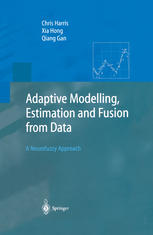

Most ebook files are in PDF format, so you can easily read them using various software such as Foxit Reader or directly on the Google Chrome browser.
Some ebook files are released by publishers in other formats such as .awz, .mobi, .epub, .fb2, etc. You may need to install specific software to read these formats on mobile/PC, such as Calibre.
Please read the tutorial at this link: https://ebookbell.com/faq
We offer FREE conversion to the popular formats you request; however, this may take some time. Therefore, right after payment, please email us, and we will try to provide the service as quickly as possible.
For some exceptional file formats or broken links (if any), please refrain from opening any disputes. Instead, email us first, and we will try to assist within a maximum of 6 hours.
EbookBell Team

4.7
86 reviewsIn a world of almost permanent and rapidly increasing electronic data availability, techniques of filtering, compressing, and interpreting this data to transform it into valuable and easily comprehensible information is of utmost importance. One key topic in this area is the capability to deduce future system behavior from a given data input. This book brings together for the first time the complete theory of data-based neurofuzzy modelling and the linguistic attributes of fuzzy logic in a single cohesive mathematical framework. After introducing the basic theory of data-based modelling, new concepts including extended additive and multiplicative submodels are developed and their extensions to state estimation and data fusion are derived. All these algorithms are illustrated with benchmark and real-life examples to demonstrate their efficiency. Chris Harris and his group have carried out pioneering work which has tied together the fields of neural networks and linguistic rule-based algortihms. This book is aimed at researchers and scientists in time series modeling, empirical data modeling, knowledge discovery, data mining, and data fusion.